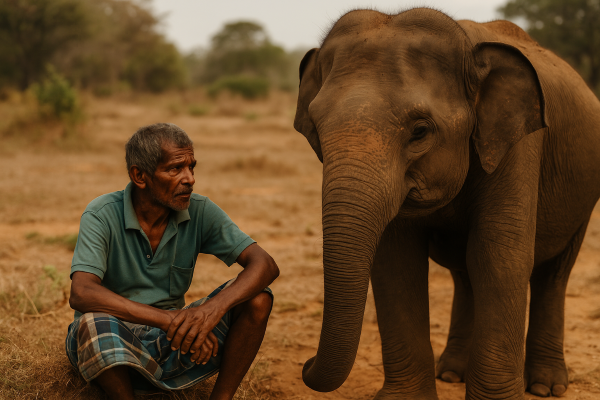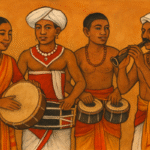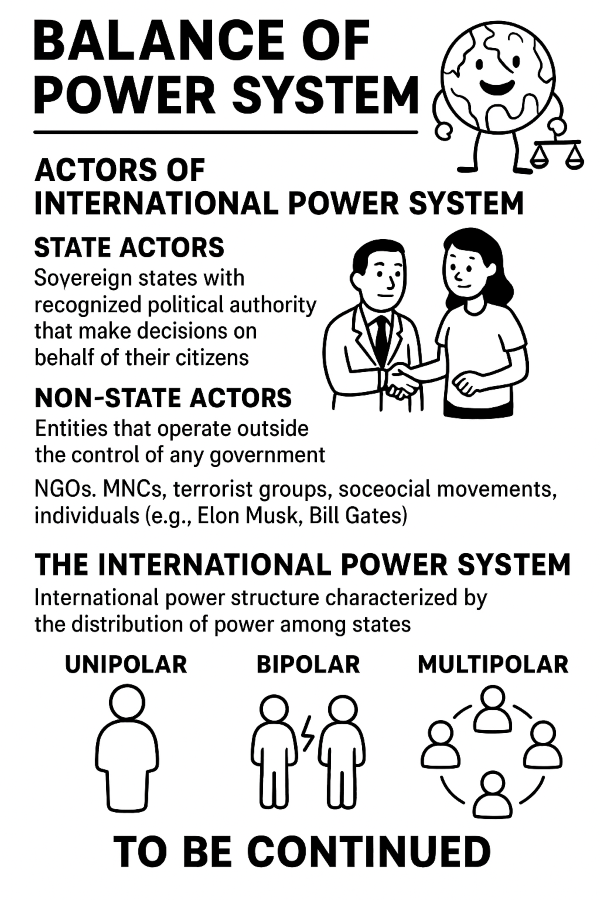Sharing the Land: Why Protecting Elephant Habitats Means Protecting Ourselves – by Nadeeka – eLanka

In the heart of Asia and Africa, especially in countries like Sri Lanka, India, and Kenya, a silent struggle is unfolding. It’s not a war of guns or politics — it’s a growing tension between two species trying to survive: humans and elephants. As human populations expand, cities grow, and farmland stretches into the wild, elephants — the gentle giants of our forests — are finding it harder to live in the homes they have known for centuries. This conflict is not just tragic for the elephants. It’s also dangerous for the people. And unless we act with understanding, respect, and kindness, we all stand to lose.
Elephants are not just animals. They are part of the world’s natural heritage. In Sri Lanka, for example, elephants are woven into the culture, religion, and history of the land. They are symbols of strength, wisdom, and grace. Yet today, many of these majestic creatures face danger every time they try to cross a road, find water, or search for food — simply because the forests they once roamed freely are now turning into villages, highways, or farms.
But let’s be clear: this is not about blaming anyone. People also need land to live, grow food, and raise families. Many farmers and villagers living near elephant habitats are doing their best to survive, just like the animals. Sometimes elephants raid crops or damage property, and in fear or frustration, people might retaliate. These moments of conflict are painful on both sides. Elephants are killed. People are injured or even lose their lives. The fear grows. The gap widens. But this is not a problem without a solution. In fact, the answer lies in respecting both life forms and understanding that humans, with our intelligence, have the greater responsibility to lead the way forward.
Why do elephants enter human spaces? It’s not because they want to harm us. It’s because they no longer have enough food, water, or space in the wild. When forests are cleared for buildings, roads, or agriculture, elephant corridors — the natural paths they’ve walked for generations — are broken. Imagine being forced out of your home and told to survive somewhere else, without warning. That’s what’s happening to elephants across Asia and Africa. They are not invading — they are trying to survive.
And when we say “protect elephants,” we are not saying “forget about people.” In fact, protecting elephants helps protect people too. Elephants play a crucial role in keeping ecosystems healthy. They help spread seeds, open up waterholes, and maintain forest balance. When elephant habitats are preserved, they also protect rivers, forests, and natural resources that people depend on too — especially in rural areas.
So what can we do? The answer is not simple, but it is possible — and it begins with compassion and smart planning. Governments, conservationists, and local communities need to work together to create safe zones and corridors where elephants can live and move without coming into conflict with people. Electric fencing, early warning systems, eco-tourism, and community education are all tools that have shown success in reducing human-elephant conflict. In some places, local farmers are even supported to grow crops that elephants don’t like — reducing the chance of raids and giving people peace of mind.
Technology can help too. Drones, GPS collars, and real-time alert systems can track elephant movement and give villagers time to react safely. But no technology can replace the power of understanding, respect, and empathy. When people see elephants not as threats, but as fellow beings sharing the earth, everything changes.
Children should grow up learning about elephants, not fearing them. Tourists should visit responsibly, supporting conservation and local communities. And every one of us — no matter where we live — should remember that the loss of elephants is not just an animal problem. It is a human problem too.
We, as humans, have been gifted with intelligence, communication, and the ability to solve problems with kindness. That is our strength — and it is our duty to use that strength to care not just for ourselves, but for every living being on this planet. When we protect elephants, we also protect biodiversity, forests, climate, and the future of our children. In saving them, we are saving part of ourselves.
Let us move forward together — not as enemies in a conflict, but as guardians of a shared home. Because this earth belongs to elephants too. And if we make space for them, we make space for life, balance, and beauty to flourish.






















